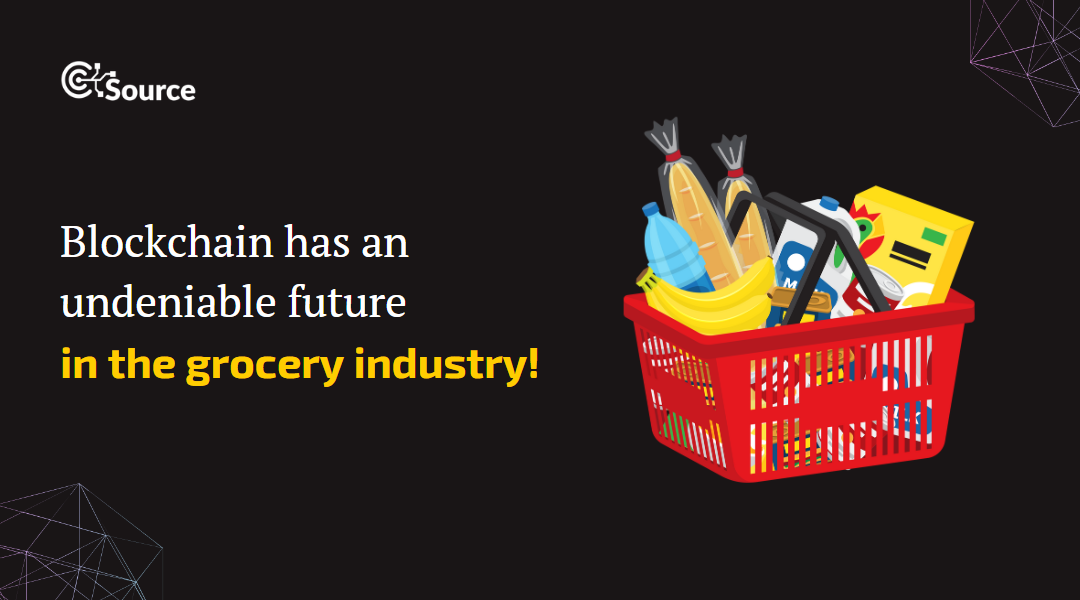Hold onto your shopping carts because the grocery industry is about to get a serious upgrade! That’s right, the latest buzz in town is that blockchain technology has decided to take a stroll down the produce aisle, and it’s leaving a trail of awestruck shoppers in its wake.
It seems like blockchain is the new cool kid on the blockchain, infiltrating every industry like a boss. From finance to healthcare, and now to groceries, this digital technology is making its mark and we are here for it!
But why stop buying cryptocurrencies with blockchain when you can now buy carrots, too? That’s right, with blockchain technology, the grocery industry is about to experience a revolution. Shoppers can now track the journey of their produce from the farm to the supermarket shelves, ensuring that their bananas didn’t come all the way from Jupiter.
So, forget about the old-fashioned grocery shopping experience of blindly throwing items in your cart and hoping for the best. It’s time to embrace the future with blockchain technology and have some fun while you’re at it!
What is blockchain
Blockchain is a digital technology that enables secure and transparent transactions without the need for intermediaries like banks. It’s like a digital ledger that records and tracks transactions across a network of computers, creating a permanent and unalterable record. Each block in the chain contains information about the transaction, and once added to the chain, it cannot be changed, making it a highly secure way to store and transfer data. Think of it as a digital notary that ensures the validity of transactions, making it a promising tool for various industries, from finance to supply chain management.
Why would the grocery industry use blockchain?
The grocery industry is one of the largest and most complex supply chains in the world, involving multiple players from farmers to retailers. With this complexity comes a range of challenges, such as food fraud, supply chain inefficiencies, and concerns about food safety and quality. Blockchain technology can address many of these challenges by providing a secure, transparent, and efficient way to track and verify the movement of goods throughout the supply chain.
- One of the primary benefits of blockchain in the grocery industry is increased transparency. The technology allows for a secure, tamper-proof digital ledger that can be used to track products from the farm to the supermarket shelf. Consumers can see exactly where their food came from and how it was produced, giving them more confidence in the safety and quality of the products they purchase.
- Blockchain can also help prevent food fraud and ensure ethical sourcing practices. With the digital ledger, every stage of the supply chain can be recorded, including the origin of the products, how they were transported, and how they were handled. This provides a level of transparency that can help prevent fraudulent activity, such as the mislabeling of products, and promote ethical practices, such as fair trade.
- In addition, blockchain can help reduce supply chain inefficiencies and waste. By providing real-time tracking of products, retailers, and suppliers can optimize their inventory management and reduce waste. In the case of a product recall, blockchain can also help quickly identify affected products and remove them from the supply chain, reducing the risk of harm to consumers.
Overall, the adoption of blockchain technology in the grocery industry can bring significant benefits to all stakeholders involved in the supply chain, including farmers, suppliers, retailers, and consumers. By providing a secure and transparent way to track products, blockchain can help improve efficiency, reduce waste, increase transparency, and promote ethical practices.
How would blockchain affect the grocery industry?
Blockchain technology has the potential to revolutionize the grocery industry by enhancing transparency, efficiency, and trust. It provides a secure and transparent way to record and verify the movement of goods throughout the supply chain, from farm to table.
- One of the main benefits of blockchain in the grocery industry is supply chain management. With blockchain, each stage of the supply chain can be recorded and tracked, allowing for real-time monitoring of products. This can help prevent food fraud, reduce waste, and optimize inventory management. For example, retailers can quickly identify products that are about to expire and reduce prices to prevent waste.
- Another area where blockchain can make a significant impact is food safety. Blockchain can help ensure that food products are safely stored, transported, and handled, reducing the risk of contamination. Additionally, consumers can have more confidence in the safety of their food by being able to trace its origin, which can help prevent foodborne illnesses and increase customer trust.
- Blockchain can also increase transparency in the grocery industry. With the digital ledger, consumers can see the entire history of a product, including where it came from, how it was produced, and how it was transported. This can promote ethical practices and sustainable sourcing, as consumers can choose products that align with their values.
- Finally, blockchain can enhance customer engagement and loyalty. With the transparency and traceability provided by the blockchain, consumers can feel more connected to the products they purchase, which can lead to increased brand loyalty. Additionally, blockchain can enable retailers to offer more personalized and targeted marketing campaigns based on consumer preferences and purchasing history.
The adoption of blockchain in the grocery industry can bring significant benefits to all stakeholders involved in the supply chain. By providing a secure and transparent way to track products, blockchain can help improve efficiency, reduce waste, increase transparency, and promote ethical practices, ultimately leading to a safer and more sustainable food system.

